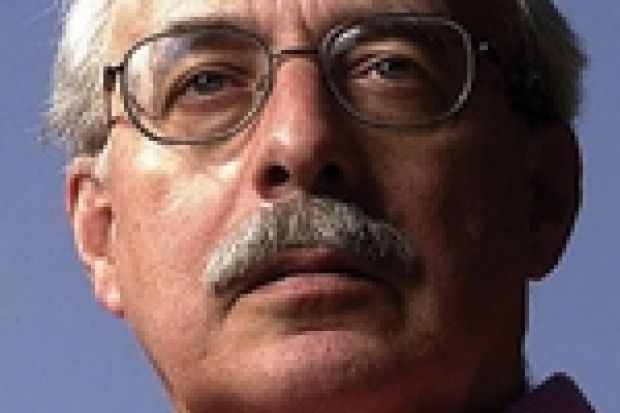A scholar, soldier and unlikely television star has died.
Richard Holmes was born in Staffordshire on 29 March 1946 and educated at Forest School in northeast London before going on to read history at Emmanuel College, Cambridge. He continued his studies first in the US at Northern Illinois University and then back in the UK at the University of Reading, eventually completing a PhD on the French army under Napoleon III.
Even at this stage, Professor Holmes was already combining major research on military history with life as a practising soldier. He joined the Territorial Army at the age of 18, became an officer while still at Cambridge and, although he never saw active service, in 1994 became Britain's most senior reservist, as Brigadier TA.
He taught in the department of war studies at the Royal Military Academy Sandhurst from 1969 to 1982 before leaving to command the 2nd Battalion The Wessex Regiment. It was only in 1986, therefore, that Professor Holmes took up a mainstream academic post, at Cranfield University, where he established the Security Studies Institute and later became professor of military and security studies.
Hugely prolific, he produced ambitious works that range chronologically from a programme on Oliver Cromwell for the BBC's 100 Greatest Britons series and a biography of the Duke of Marlborough, Marlborough: England's Fragile Genius (2008), to a study of frontline troops in Iraq, Dusty Warriors: Modern Soldiers at War (2006).
His enthusiastic but no-nonsense television persona made Professor Holmes' series such as Battlefields and War Walks hugely popular.
Equally acclaimed was his poignant trilogy of books on the lives of generations of ordinary combatants: Redcoat: The British Soldier in the Age of Horse and Musket (2001), Tommy: The British Soldier on the Western Front (2004) and Sahib: The British Soldier in India 1750-1914 (2005).
In Tommy, Professor Holmes was determined to avoid the distorting effects of memory. He relied largely on contemporary accounts held in collections such as the Imperial War Museum. The result was far more melancholy than gung-ho or heroic, he once recalled, and "put (him) in mind of what T.E. Lawrence called 'the rings of sorrow' that spread out from each person's death".
In another major recent book, The World at War: The Landmark Oral History from the Previously Unpublished Archives (2007), Professor Holmes made highly effective use of the extensive interview material that had been recorded for the celebrated 1970s television series but was not included in the broadcast programmes.
After a long battle with cancer, he died of pneumonia on 30 April 2011. He is survived by his wife, Katherine Saxton, and their two daughters.
